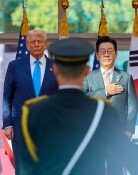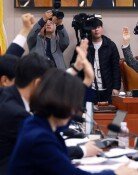[Editorial] Return of `honorable retiree teachers' and blind educational policies
[Editorial] Return of `honorable retiree teachers' and blind educational policies
Posted October. 19, 2000 21:56,
Reform measures can render useful results when they are implemented neatly without repercussions. Their ill-prepared initiation or inadequate implementation, on the other hand, can create enormous ripple effects as well as confusion. Reforms require, therefore, rigorous scrutiny about their ability to be realized and applicability to the given circumstances as much as the courage of the initiators to push them through.
Precise comprehension of present realities and the planning relevant to the given situation are imperative for the success of any educational reforms. As it is usually referred to, education is something which requires a long-range plan and perspectives looking into the future for 100 years.
The People's Government of President Kim Dae-Jung has initiated many educational reforms. Among them. the most representative was an introduction of the early retirement system of teachers who are usually known as ``honorable retiree teachers.'' Was this reform successful? The relevant data on the honorable retirees which were submitted for the parliamentary inspection of the administrative branch, indicates that the reform reflects the administration's failed policies.
The data indicates that some 21,700 elementary teachers retired on the honorary retirement system but 7,319 teachers which represents 33.6 percent of them have returned to school teaching again. The massive honorable retirees gave rise to the acute shortage of teachers. As a desperate measure to solve the situation, the educational authorities had to rehire them on a contractual basis.
The introduction of teachers' early retirement was regarded as colossal reform measures at that time. Yet, the administration has failed to forecast exact need for teachers even for the two years ahead of such an earth-shattering reform. This was due to the administration's inordinately hasty move to push with the reform because of its obsession with the reform's visible outcomes.
The educational authorities railed the teachers protesting against the early retirement as anti-reformists. In the process, all teachers, remaining or retired, suffered loss of pride and self-esteem with the fallout and damage ending up hurting people who have school-age children.
The other educational reform has to do with the legalization of the teachers' union, but the legalized teachers' union is now in sharp confrontation with the Ministry of Education (MOE). The unionist teachers are protesting against the MOE, because it is delaying the implementation of some of its agreements with the union in July.
The root cause for such a conflict can be found in the law of the teachers' union, which stipulates that the MOE, the union's negotiating counterpart as the employer of teachers, has no mandatory obligation to carry out its agreements with the union. Thus, the possibility of such a conflict is inherent in the law which is patently absurd. The fact that such an erratic law was enacted showcases the administration's myopic policy perspectives and considerations.
In addition, the general public's misgivings are on the rise about the administration's drastic revision of the university admissions guidelines for the year 2002, which purport to eliminate private tutoring, but appear to cause pandemonium. The dispensation of a written test for senior matriculation and the lack of objective criteria for university admissions are already causing enormous confusion and disorientation. The ripple effects are high schools' inflated school grades and certificates of merits.
It behooves our educational authorities to critically review their reform measures and find the ways to minimize their adverse effects.







